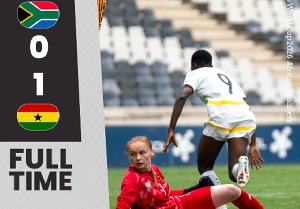London's Independent reported over the weekend that Placer Dome [PDG] and Barrick [ABX] are potential bidders for Ashanti Goldfields [ASL].
In that case, so is Microsoft a potential bidder. Mineweb's sources say neither of the Canadian senior gold producers is contemplating competing offers to those already announced by AngloGold [AU] and Randgold [GOLD].
Barrick routinely declines to comment on market speculation and Placer has taken a similar line on the rumours. A source close to Placer said the company had run its rule over Ashanti some time back, but had little more than an academic interest in proceedings now.
Barrick could digest Ashanti, but the logic for doing so at this point would be questionable given its discounted stock.
Claims
Meanwhile, AngloGold is seething about claims made by Randgold to bolster its bid for Ashanti.
Dr Mark Bristow has been telling the market that the Morila Mine in Mali, one of the world's richest at the current peak in its development, is a testament to Randgold's mining prowess and fitness for Ashanti.
"It's BS," fumed a source close to AngloGold. "Syama wasn't just a 'whoopsie' that can be ignored. Randgold lost majority ownership of Morila because they got it badly wrong - they had to be rescued."
Similarly, Bristow is accused of gilding Randgold's achievements on Morila.
"Without AngloGold's substantial cash injection, Morila would never have been developed," added the source. He was generally irritated by Randgold's tendency to claim to most of the credit for the mine, pointing out that day-to-day operational control was in AngloGold hands.
That has also given rise to comparisons about Randgold's cost structure versus AngloGold's; the latter accused by the Randgold camp of being spendthrift.
That's a risky issue for Randgold because its executives take home higher pay than AngloGold's do as a percentage of company profits.
The Deeps
Obuasi Deeps is clearly the swing factor in the bids and the Ghanaian government has now confirmed it. Consequently, Randgold is leveraging the success of Morila and sister company Western Area's involvement in the South Deep project in South Africa to offset AngloGold's weighty balance sheet.
The source is utterly disdainful of Randgold's ability to recover Ashanti.
"You can't bootstrap Ashanti using 40% of the cash flow from Morila! The clock is ticking for Ashanti; everything is sliding."
Obuasi Deeps still has to be proved to exist and AngloGold has committed $44 million for exploration. Thereafter, it will take a vast capital programme to bring the new ounces into production if they do indeed exist in a recoverable setting.
"Randgold can't count on Western Areas. It is not at all hands on at South Deep. Management arrives for major capital budget decisions and that is it," said the source in reference to Obuasi Deeps.
Long before that, Ashanti's key operations need mining fleet upgrades and wide ranging changes to halt escalating costs. AngloGold is benchmarking $200 per ounce cash costs to start with and bets that it can drop them a further $20/oz, but it will take considerable spending in the short term.
Ashanti will struggle to make the near-term cash commitments independently as it continues its recovery from bank supervision, and Randgold's available cash will be gobbled up quite quickly just paying off Lonmin's [LMI] Mandatorily Exchangeable Notes that will cost close to $100 million including accrued and unpaid interest. Its capacity to raise competitive debt funding for growth will be constrained compared with AngloGold.
That prompted another Randgold critic to say: "I don't think Ashanti shareholders can seriously think that coming into majority control of a minority stake in one producing mine [Morila] is worth the effort or risk."
Values AngloGold has clawed back some ground from Randgold with the bids separated by less than $100 million for the first time. Ashanti stock continues to trade slightly higher than the AngloGold offer, but the gross notional difference
$11 million or so - is unlikely to winch more money out of AngloGold.
However, comparing both bids before Ashanti first confirmed that AngloGold was conducting due diligence shows that the difference has grown by around $40 million and may be an indicator of what any possible hike in Anglogold's offer might be.
Business News of Tuesday, 19 August 2003
Source: Mineweb












